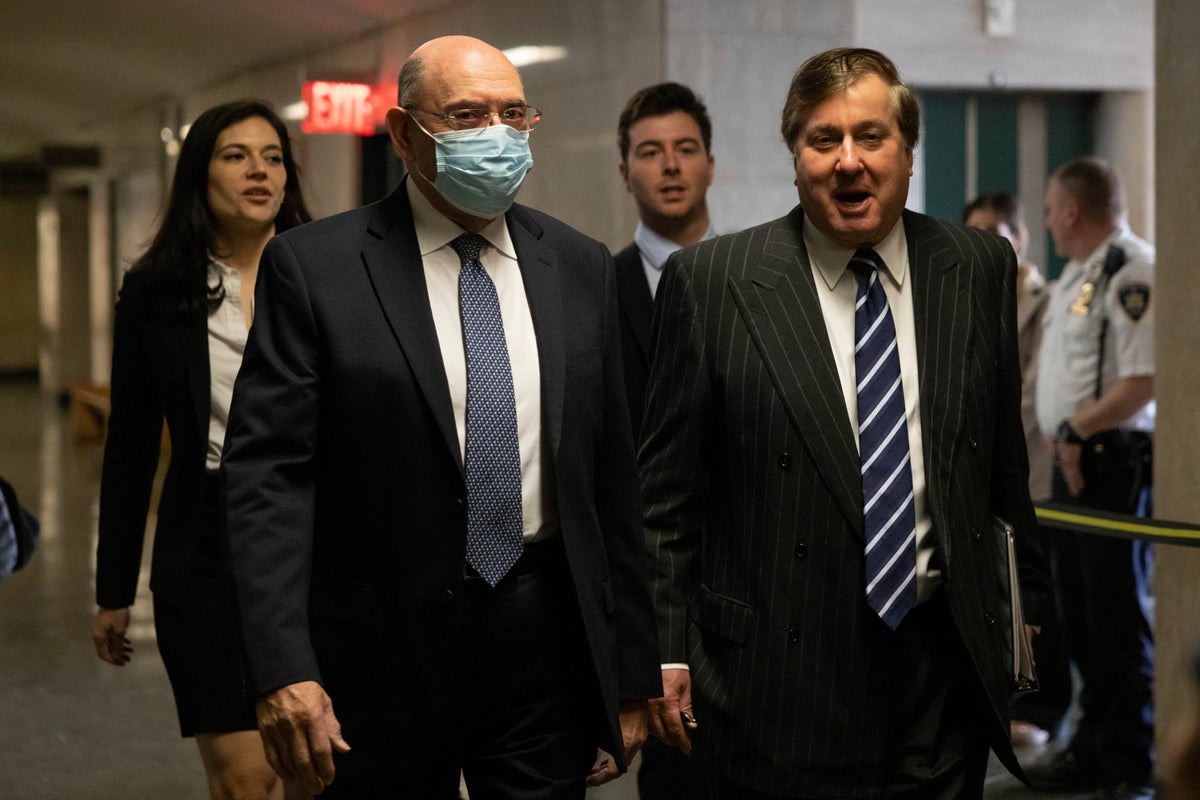
The New York City prosecutors hoping to convict former president Donald Trump’s eponymous real estate and licensing company of violating state tax laws by paying for apartments, cars and other benefits to top executives without reporting the cost as compensation finished presenting their case against the Trump Organization on Monday.
Prosecutors rested their case earlier than expected after presenting testimony from two of the company’s top executives over the last eight days in court.
One witness was Allen Weisselberg, the longtime chief financial officer who in August pleaded guilty to evading $1.7m in taxes.
He testified as part of a plea agreement under which he recieved only a five-month jail sentence, telling the jury that Mr Trump was not involved in the tax-evasion scheme.
Prosecutors have argued that because the Trump Organization helped executives avoid paying taxes on company-funded perks, and the company itself is criminally liable for what Weisselberg did because he was a “high managerial agent” acting on its behalf.
The other Trump Organization witness, Jeffrey McConney, is a senior vice president and controller for the company. Testifying as part of a deal under which he recieved immunity from prosecution, he told jurors that Weisselberg and another longtime Trump Organization executive, Michael Calamari Sr, pressed him repeatedly over a period of years to alter payroll records so perks such as Manhattan apartments and Mercedes-Benz cars would be hidden from tax collectors by reducing their salaries by the cost of the benefits and falsifying tax forms.
Attorneys for the company opened their rebuttal of the prosecution’s case with testimony from Donald Bender, a partner at the accounting firm which handled Mr Trump’s finances until last year.
Mr Bender said he spoke to McConney “numerous times” each week about tax issues and frequently corresponded with Weisselberg via email. But the Mazars USA accountant said he did not frequently interact with Mr Trump, who has not been charged despite a long-running probe into his conduct by the Manhattan district attorney’s office.
In a post on his Truth Social platform, Mr Trump blamed his former accountants for the company’s troubles, writing that the “highly paid accounting firm should have routinely picked these things up”.
The case against the Trump Organization is the only one to come out of the district attorney’s three-year probe into Mr Trump and his business practices. If convicted, his company could face fines in excess of $1m.







